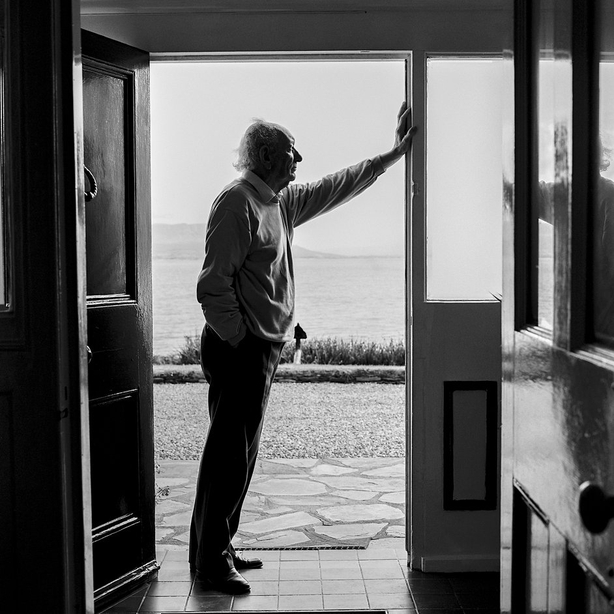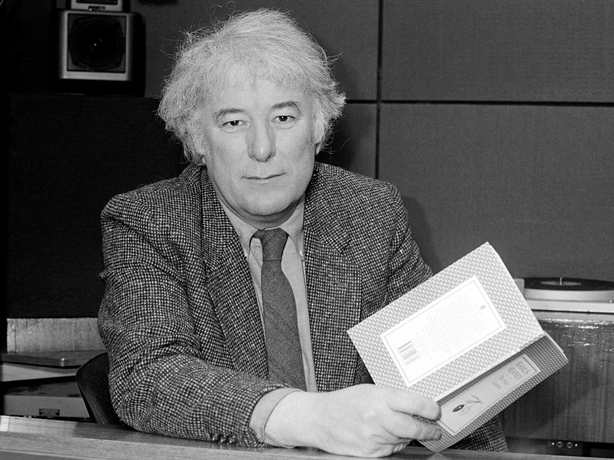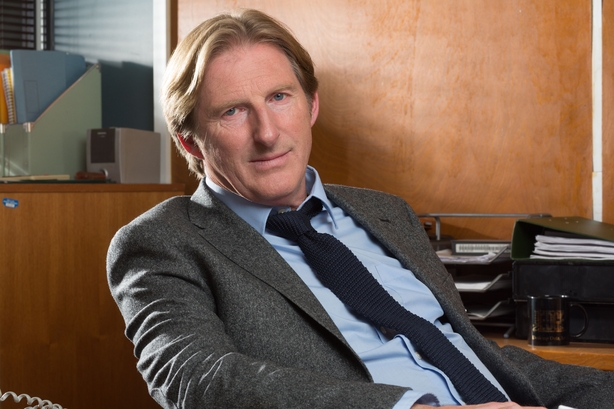Arts entrepreneur and programmer Liam Browne, of DoranBrowne, writes about this year's FrielFest: Brian Friel International Festival, which runs in Donegal and Derry from 23 to 28 August.
Back in 1982, in an interview with Fintan O’Toole, Brian Friel spoke about ‘a sense of rootlessness and impermanence’ in his life. Despite this, or perhaps because of it, his work has an extraordinary sense of place, though his characters’ response to the concept of home is full of ambiguity. For our inaugural festival in 2015 Brian Friel allowed my colleague, Sean Doran, and I to present a promenade rehearsed reading of the four monologues of Faith Healer in community halls across west Donegal, a format which in a way echoes the peripatetic life of the faith healer himself, Frank Hardy. We’re bringing it back again this year and the audience will travel by bus between community halls in Glenties, Portnoo and Ardara, and between Acts 2 and 3 they will enjoy an interval picnic on Portnoo pier (the setting for Friel’s Wonderful Tennessee). There is no director, each of the actors - Andrew Bennett (Frank), Tadhg Murphy (Teddy) and Clara Simpson (Grace) - prepares their own reading and wait in their respective community halls for the audience to arrive. For a play in which the unreliability of memory is such a crucial element that sense of separation between the actors seems entirely appropriate. In isolation they tell their own stories, their own version of events.

Making History is our signature play at this year’s festival and provokes question about how history is made, how stories are told. Brian Friel had a great love of Homer, it is said that he read one of the epic poems. the Iliad or the Odyssey, every year. Part of their appeal for him may well have been those themes of rootlessness and impermanence mentioned earlier. Home for the Trojans was a city under siege, they were in constant fear of being overrun at any moment; for the Greeks home was a place they had left long ago and to which they were desperate to return. At the beginning of the Iliad they have been camped on the plain at Troy for ten long years with no end in sight, wishing the war over, yearning to be able to climb aboard their black ships and sail back to the Greek mainland and islands. At the beginning of the Odyssey another ten years have elapsed and Odysseus and his crew still have a long and perilous journey home ahead of them, with no certainty that they would ever make it.
It struck Sean and me, in terms of bringing those two two epic poems into the festival, that Derry and Donegal were both symbolically and geographically complementary: the walls of Derry, which withstood the Siege of 1688-89, were a perfect venue for the Iliad and the beaches of west Donegal and Inishowen a thrilling setting for the Odyssey. And so Conall Morrison is directing a reading of Christopher Logue’s version of the Iliad, War Music, across the festival in five different venues linked to the Walls, and Adrian Dunbar is directing the Odyssey on the beaches of Bundoran, Narin, Kincasslagh, Marble Hill and Fahan.

Both Brian Friel and his close friend, Seamus Heaney, instinctively turned to the great mythopoeic texts of Western literature, in particular Friel to Homer and Heaney to Virgil, not just for their intrinsic qualities but for the light they shone on how to live, on how, as Heaney said in an interview, ‘to live up to your own best possibilities.’ It seemed appropriate and timely therefore to incorporate Heaney’s vision into the festival. We’ve shaped a reading of his translation of Book VI of the Aeneid into three sections to symbolise the descent of Aeneas into the underworld. Presented by Kabosh Theatre, it begins in the great hill fort of Grianan of Aileach in Co. Donegal, then proceeds to Lumen Christi College (formerly St Columb’s College where Heaney studied Latin under Fr. Michael McGlinchy) and ends in the basement of the Deanery in Bishop Street at the edge of the city’s Walls. From the expansive and affirming light of Grianan (where you can look across three counties) to the near darkness of the Deanery’s basement via the very place where Heaney’s love of Latin began, the audience are taken on a physical as well as emotional journey.

Narin, Kincasslagh, Marble Hill and Fahan.
At the time of the IRA ceasefire in 1994, Heaney’s response to the great waste of human life of the preceding decades in Northern Ireland was to turn again to the Greeks and to write Mycenae Lookout. An epic poem, exploring the murder of Agamemnon, it brings together the classical and the contemporary, the aftermath of the Trojan War echoing down the ages to a post-Troubles world. That connection we hope is reinforced by our use of the plinth of Walker’s Column as the venue for two early mornings readings of Mycenae Lookout. Rev. George Walker was one of the heroes of the Siege of Derry but his statue on the city’s walls, overlooking the Bogside, was blown up by the IRA in 1973. As far as we’re aware the plinth has never before been used for an event of this kind.
The challenge in a destination festival of marrying event to place, of offering that added frisson to an audience, is one of the great pleasures of programming; in that respect Derry and Donegal seem to offer endless possibilities.
For further information on FrielFest 2017, and to book tickets, go here.

